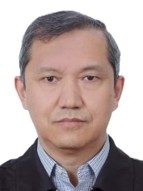From the Vice Chair
-

WANG Weisheng
(CEPRI, China) -
Climate change has become an irreversible global issue as well as one of the most urgent and severe challenges faced by human society. Countries around the world consider actively combating climate change as an inherent requirement for achieving their own sustainable development and take actions to vigorously develop renewable energy. In this context, renewable energy represented by wind and photovoltaic power generation has achieved tremendous development worldwide, bringing multiple challenges to the power system. Given the emerging trends influencing the evolving power industry landscape, IERE focuses on innovative, emerging, foresight and environmentally friendly electric power technologies and solutions, and serves its members as a unique global platform on a mission to help shape corporate strategy on R&D, evaluate innovative and emerging technologies and promote their implementation so as to realize the safe, sustainable, affordable and resilient power systems. It is my great honor to have been elected as the Vice Chair of IERE. I believe that my personnel academic background and working experience will help accomplish the above mission. For years, I have specialized in the research and engineering application of renewable energy operation and control technology and have rich experience in the stable operation and efficient accommodation of renewable energy. In the past decade, I have also witnessed that China's installed capacity of renewable energy has increased from about 125 GW to 1,350 GW, which accounts for over 43% of the global total. More experts are welcomed to join IERE's various activities. I am firmly convinced that through our joint efforts, we can further fulfill IERE’s mission, enhance IERE's global image, and contribute more to the global green and low carbon energy transition.
WANG Weisheng
IERE Vice-Chair

